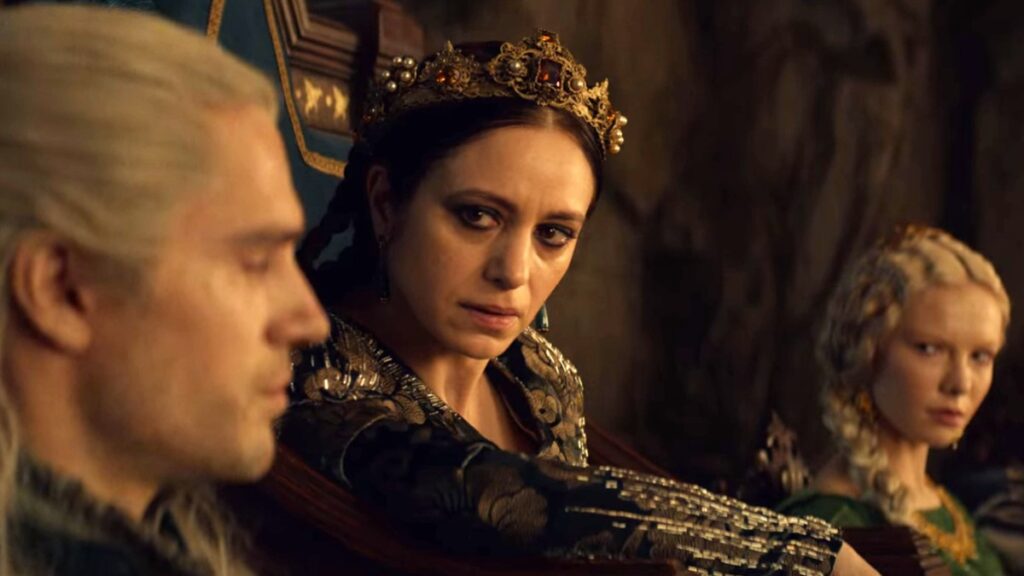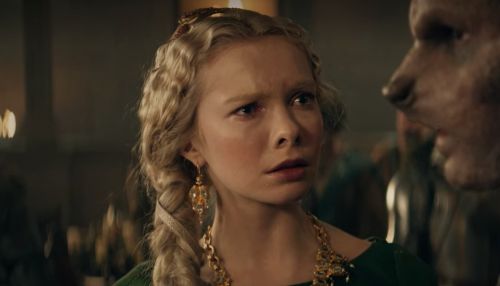The continent or world of The Witcher is similar to our own but also distinct from it due to the presence of magic and monsters as well as the particular laws that are observed there. One such law that applies to the entire continent is the Law of Surprise, which is one of the most frequently used laws whenever someone owes another person something. But what does The Witcher’s Law of Surprise actually mean?
Every time someone’s life is saved, the Law of Surprise may be used. The Law of Surprise often dictates that the person whose life was saved should gift the saviour something they already had but was unaware of. This might manifest as a crop or perhaps a child.
Because the Law of Surprise was very briefly stated by Geralt in The Witcher, many people have trouble understanding it. Having said that, in order to comprehend The Witcher’s whole story and why Ciri belonged to Geralt, you must first comprehend the Law of Surprise and why it is revered throughout the continent.
Could It Ever Be Legally Enforced?
In most jurisdictions, the law specifies that both parties would need to be clear on the extent and definition of surprise for the agreement to be fully enforceable. If there were a true Law of Surprise and someone were to invoke it in the real world, it would be challenging to have it legally enforced. The Law of Surprise is so ambiguous, though, that whatever the debtor owes the creditor could be anything.
Of course, if the surprise turned out to be a child of surprise, it cannot be enforced simply because it is morally wrong to give away a child to pay off a debt. Giving up a child as money is typically forbidden by law, though it would be different if it happened through adoption.
Is It Inspired By The Real Thing?
In actuality, there is no Law of Surprise because it is not a legally recognised norm in any nation. Regardless matter whether they are true or not, additional myths and legends serve as the basis for the Law of Surprise.
The narrative of Duny is actually based on the German fairy tale Hans My Hedgehog, to start. Hans, who lives in the forest and is a cross between a hedgehog and a man, appears in that story. When a king gets lost in the wilderness, he decides to assist the king in returning home as long as the monarch signs a contract stating that the king should pay him whatever is the first to welcome him.
The king’s daughter was the first person to welcome him home, so Hans was already indebted for her. Given that Hans wed the daughter and later developed into a gorgeous guy, this story is pretty similar to Duny and Pavetta’s.
When you make a deal with the devil, one of the things you truly invoke according to Slavic mythology is the Law of Surprise. In the meantime, Jephthah the Gileadite makes a deal with God in the Bible’s book of Judges, chapter 11, where he promises to offer God the first thing that comes out of his home to welcome him when he returns in exchange for God promising him victory. He had to offer him up to God because his daughter had welcomed him first.
In conclusion, the Law of Surprise appears in several mythology and folklore even though it may not actually exist. After all, The Witcher is really a synthesis of several mythology and folklore.
Was Geralt A Child Of Surprise?
Whether or if Geralt is a kid of surprise himself is one of the things that perplexes people the most about him. In the novels, Mousesack warned Calanthe that since Geralt was himself a product of the Law of Surprise, he would know more about it than anyone. The misconception arises from the fact that most witchers are actually the result of the Law of Surprise, having been handed to witchers as young boys in order to become witchers.
Geralt, however, never explicitly said that he was a kid of surprise. In the books, he acknowledged that Mousesack was mistaken at one point. Having said that, it’s likely that Mousesack was incorrect because he merely generalised that all Witchers are surprise offspring. Since there is no assurance that a child will survive the training to become a witcher, no parent with a rational mind would be willing to give them up.
What Is The Law Of Surprise In The Witcher?
The fact that Ciri is Geralt’s kid since she was the prize that manifested when Geralt invoked the Law of Surprise is one of the key elements of The Witcher’s narrative in the books, games, and television series. Thus, Ciri and Geralt were destined to be together since the Witcher filled the role of the father that the princess lacked for much of her youth. Naturally, the bond between Geralt and Ciri and what the Witcher is willing to do to protect his kid of surprise dominates the entire plot of The Witcher.
But even though the Law of Surprise makes it clear that Ciri is a child of surprise, many people are unsure of its exact meaning. What does The Witcher’s Law of Surprise mean in this context? Before we respond, let’s examine this law’s history and how it came to play such a significant role in The Witcher.
In the first season, while Queen Calanthe of Cintra was looking for a good husband for her daughter to create connections with other kingdoms, we saw Geralt attending the bridal banquet of Princess Pavetta. Geralt was only meant to act as Jaskier’s bodyguard, but when a strange face entered the scene, he soon got himself caught up in the confusion.
Duny, a knight in poor armour and with his face veiled, suddenly steps forward to claim the princess as his own by virtue of the Law of Surprise because he protected Calanthe’s spouse in the past and invoked the law as several suitors were standing up for Pavetta’s hand. The king of Cintra discovered Calanthe was expecting a child as he was applying the law, which meant that Pavetta was legitimately Duny’s.
Duny’s armour was ripped open by the banquet guards, and it was discovered that a curse had caused him to have a hedgehog’s face. He and Pavetta were already in love, it was later revealed.
When Calanthe realised this, she gave the order to execute Duny, but Mousesack and even Eist, who would soon become the new king of Cintra, disagreed since they believed the Law of Surprise to be sacred. Even yet, the queen gave in, which compelled Geralt to act because he concurred that the Law of Surprise is holy and must always be preserved.
Despite this, a conflict broke out because Queen Calanthe refused to give her kid up. The struggle had to be interrupted eventually, but not before Pavetta screamed and used her abilities to almost completely destroy the banquet hall just as Calanthe was about to kill Duny. At that point, Queen Calanthe eventually softened her stance and let fate to take its course. Duny’s curse was also broken as a result of this.
The knight informed Geralt that he was free to ask him anything as recompense for saving his life after the curse had been lifted and Duny was now permitted to marry Pavetta. The Witcher thought he didn’t need to ask for anything, so he was hesitant to do so. When Duny finally gave in, though, Geralt invoked the Law of Surprise and then commanded, “Give me that which you already have but do not know.”
As soon as Geralt used the Law of Surprise, Pavetta puked, revealing that she had been carrying Duny’s child all along. That implied that Ciri, their child who later proved out to be theirs, had been promised to Geralt as his surprise child. The Witcher resisted taking custody of his child of surprise and vowed never to do so. But as we saw, when he knew Cintra was about to collapse and that he needed to take Ciri to protect her, things took a turn for the worse.
The Law of Surprise can now be easily understood in light of this. The Law of Surprise essentially permits someone to claim a boon that the debtor already owns but is unaware of, as you can infer from Geralt’s words when he said, “Give me that which you already have but do not know.” Every time someone saves another person’s life, this law is typically invoked as a life debt.
However, despite the fact that The Witcher series demonstrates that the boon that results from the Law of Surprise typically manifests as a child, you need to be aware that it might be anything. Sometimes it might be something as straightforward as a crop. Anything could qualify as long as the person who owes a life debt already owns it but is unaware of it.
Why Did Geralt Invoke The Law Of Surprise?
If you’re wondering why Geralt used the Law of Surprise, it was simply to give Duny the impression that he owed the Witcher nothing throughout the course of his life. Duny stated to the Witcher that he didn’t want to live a life feeling burdened by the knowledge that he owed a life debt to someone who had saved his life at the moment where he instructed Geralt to ask anything of him.
So, as you surely already know, Geralt thought it was only right to save Duny and didn’t want to ask him for anything. However, when Geralt realised how honest Duny was, he simply used the Law of Surprise to avoid needing a reward. Geralt was undoubtedly assuming that the benefit of the Law of Surprise could be anything so straightforward.
However, Geralt was unaware that he would be receiving a child of surprise, and it was clear from the expression on his face that he didn’t want the child. He even went on to add that he didn’t want to claim the child, which led Mousesack to inform Geralt that he and Ciri are already constrained by fate and that there is no way for him to escape it.
Being a binge-watcher himself, finding Content to write about comes naturally to Divesh. From Anime to Trending Netflix Series and Celebrity News, he covers every detail and always find the right sources for his research.








